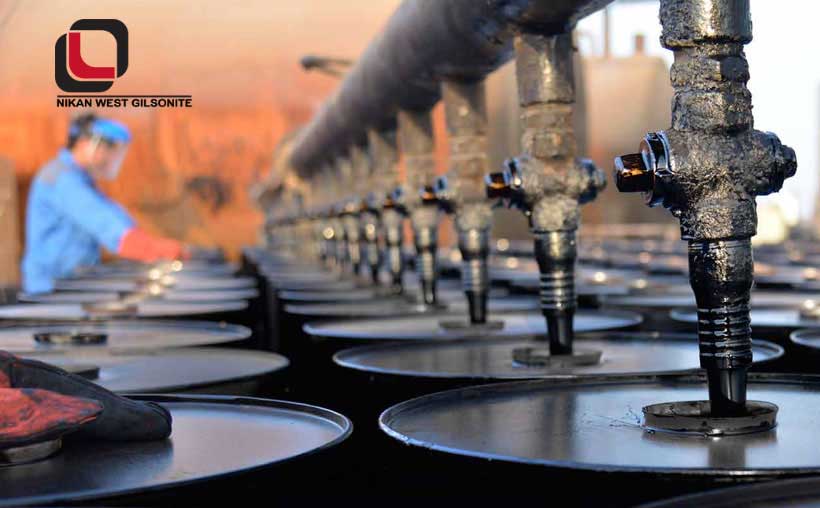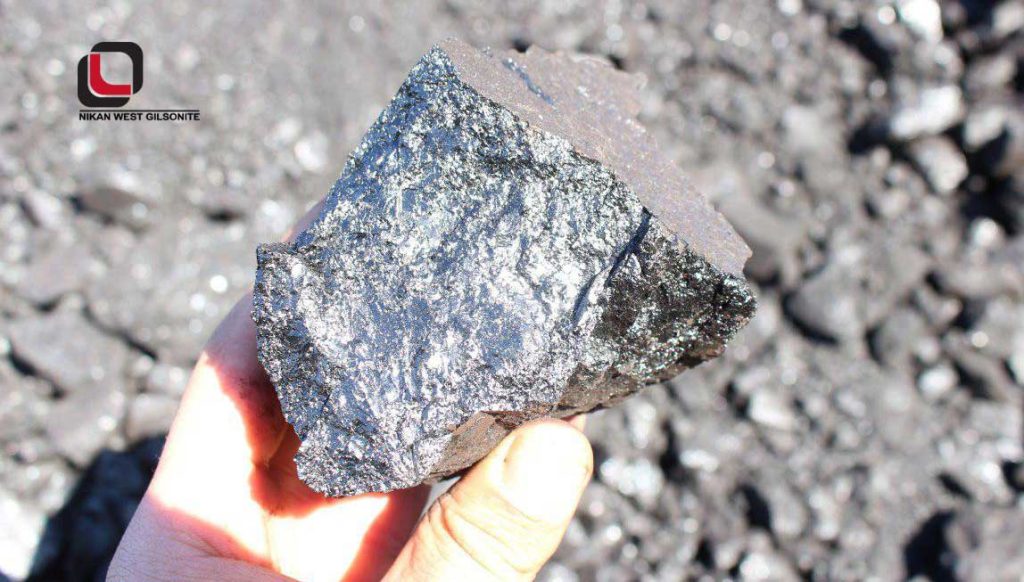In this article from Nikan west company the gilsonite producer in Iran, we want to talk about the benefits of adding Gilsonite to refinery bitumen.
Gilsonite or natural bitumen is mined naturally. This material is obtained from mines or natural asphalt lakes and is used exclusively or in combination with other materials in various industries. In appearance, natural bitumen is not different from refinery bitumen.
Even functionally, the applications of natural bitumen are very similar to those of refinery bitumen. But there are differences in the details and combinations of them, each of which has its own advantages. As a result, scientists are sometimes trying to combine two models of bitumen to increase its advantages and positive features.
Advantages of adding Gilsonite to Refinery Bitumen
Compared to bitumen made in refineries, Gilsonite has a lower degree of permeability as well as higher viscosity. As a result, the primary goal of adding it to artificial bitumen is to improve these properties in artificial bitumen.

There are other benefits to refining bitumen combined with Gilsonite, which are listed below:
If you plan to use refinery bitumen in asphalt, its combination with artificial bitumen will help to reduce the trace of wheels and grooves caused by its pressure in heavy traffic and hot weather on less asphalt.
Another advantage of natural bitumen or Gilsonite is that it reduces the temperature sensitivity of artificial bitumen. In practice, this makes the bitumen and its products less sensitive to temperature changes and does not damage them.
Interestingly, the process of adding Gilsonite to artificial bitumen is easy and does not have a complicated process. All you have to do is to add it directly to the hot bitumen or mix it with asphalt.
Gilsonite costs less than refinery bitumen, so it can reduce contracting costs overall.
Gilsonite is easily combined with other materials, and therefore increases the overall quality of the product produced in terms of moisture insulation.
Finally, the use of Gilsonite in asphalt production does not change the way the asphalt works and processes.
Read more: All about uses of Bitumen
The process of adding Gilsonite to refinery bitumen
In general, Gilsonite is added directly to the hot bitumen and mixed in different ways. The type and method of addition can also be varied. This substance can be weighed and added to natural bitumen in various forms, such as bulk, plastic melt bags, solid granules, etc.
The mixing tank must also have conditions that keep the temperature the same at all points. This is made possible by rotating the tank. The required temperature in this field is usually 170 degrees Celsius.
Gilsonite is usually soluble in refinery bitumen and does not require a mechanical mixer. However, in large tanks, different types of mechanical mixers may make this process simpler and faster. The usual tanks in this method combine the internal materials with a butterfly-shaped rotation.

other points in this regard
Of course, there are a few small points in this regard. First of all, it is better to add Gilsonite to it gradually and during the rotation of the tank. The refinery bitumen must also be heated and gradually enter the tank. The temperature of the tank should be between 170 and 1750 degrees Celsius. This temperature is the best temperature that reduces the mixing time of the tank to the minimum possible.
It will take approximately 2 to 4 hours to combine the 10% Gilsonite ratio with the refinery bitumen, and ratios above 10% will require more time.
Read more: Characteristics of suitable bitumen


